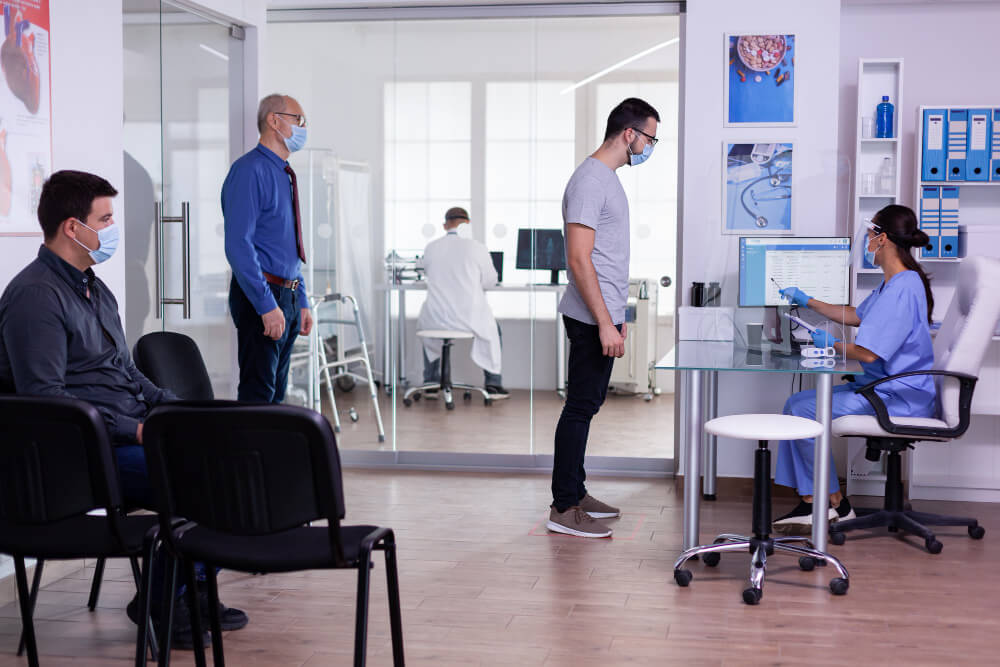When to Choose Your Primary Care Physician or a Walk-in Clinic
Life throws curveballs, and sometimes those curveballs come in the form of unexpected health issues. When you’re feeling unwell, navigating the healthcare system can feel like navigating a maze. Should you seek the familiar comfort of your primary care physician (PCP) or the convenience of a walk-in clinic? This article sheds light on the strengths and limitations of each option, empowering you to make informed decisions about your health.
The Familiar Comfort of Your Primary Care Physician:
Your PCP is your healthcare partner, a trusted confidante who knows your medical history and can provide personalized care. Choosing your PCP is an important decision, and it’s ideal to establish a relationship before you need it. Here’s when your PCP is the best choice:
- Preventive Care and Checkups: Regular checkups, vaccinations, and screenings are crucial for maintaining good health and detecting potential problems early. Your PCP knows your baseline health and can tailor preventive measures accordingly.
- Chronic Disease Management: If you have a chronic condition like diabetes, high blood pressure, or asthma, your PCP is your go-to expert. They can manage your medication, monitor your progress, and adjust your treatment plan as needed.
- Complex Medical Issues: For complex medical issues requiring ongoing care and coordination with specialists, your PCP is the central point of contact, ensuring continuity and smooth communication throughout your treatment journey.
- Mental Health Support: Many PCPs are equipped to address mild mental health concerns like anxiety and depression. This familiarity and continuity can be especially helpful for managing mental health alongside physical health.
The Convenience of Walk-in Clinics:
Walk-in clinics offer immediate access to healthcare without the need for appointments. They can be a lifesaver when you need urgent care for minor illnesses or injuries, and their flexible hours can be a boon for busy schedules. Here’s when a walk-in clinic might be your best bet:
- Minor Illnesses and Injuries: From common colds and flu to sprains and cuts, walk-in clinics can diagnose and treat a wide range of non-emergency medical issues quickly and efficiently.
- Travel and Vacation Emergencies: If you fall ill while traveling or on vacation, a walk-in clinic can provide prompt medical attention without the need to find a local PCP.
- Uninsured or Underinsured Individuals: Walk-in clinics can be a more affordable option than emergency rooms for uninsured or underinsured individuals with non-emergency medical needs.
- After-Hours Care: If your PCP is unavailable outside of regular office hours, a walk-in clinic can bridge the gap and provide immediate care for urgent concerns.
Demystifying the Treatment Options:
Both PCPs and walk-in clinics offer a range of treatment options, but their focus differs:
Primary Care Physicians:
- Focus on preventative care, chronic disease management, and complex medical issues.
- Offer a wider range of services, including diagnostic tests, laboratory work, and referrals to specialists.
- Provide personalized care tailored to your individual needs and medical history.
Walk-in Clinics:
- Focus on diagnosing and treating minor illnesses and injuries.
- May offer limited diagnostic tests and laboratory services.
- Provide quick and efficient care for non-emergency medical needs.
Beyond the Immediate Solution: The Importance of Follow-up Care:
Regardless of whether you choose your PCP or a walk-in clinic, follow-up care is crucial for optimal recovery and monitoring:
- PCP If you visit a walk-in clinic for a condition requiring ongoing care, your PCP should be informed and involved in your treatment plan.
- Walk-in Clinic If your condition worsens or requires further evaluation, your walk-in clinic might recommend follow-up with your PCP or a specialist.
- Communication and Coordination: Maintaining open communication between your PCP and any other healthcare providers involved in your care ensures a holistic approach to your health.
Conclusion:
Both primary care physicians and walk-in clinics play vital roles in the healthcare landscape. Understanding their strengths and limitations empowers you to make informed choices about your health. Whether you seek the familiar comfort of your PCP or the immediate convenience of a walk-in clinic, remember that timely care, proactive management, and effective communication are key to maintaining and improving your well-being.


